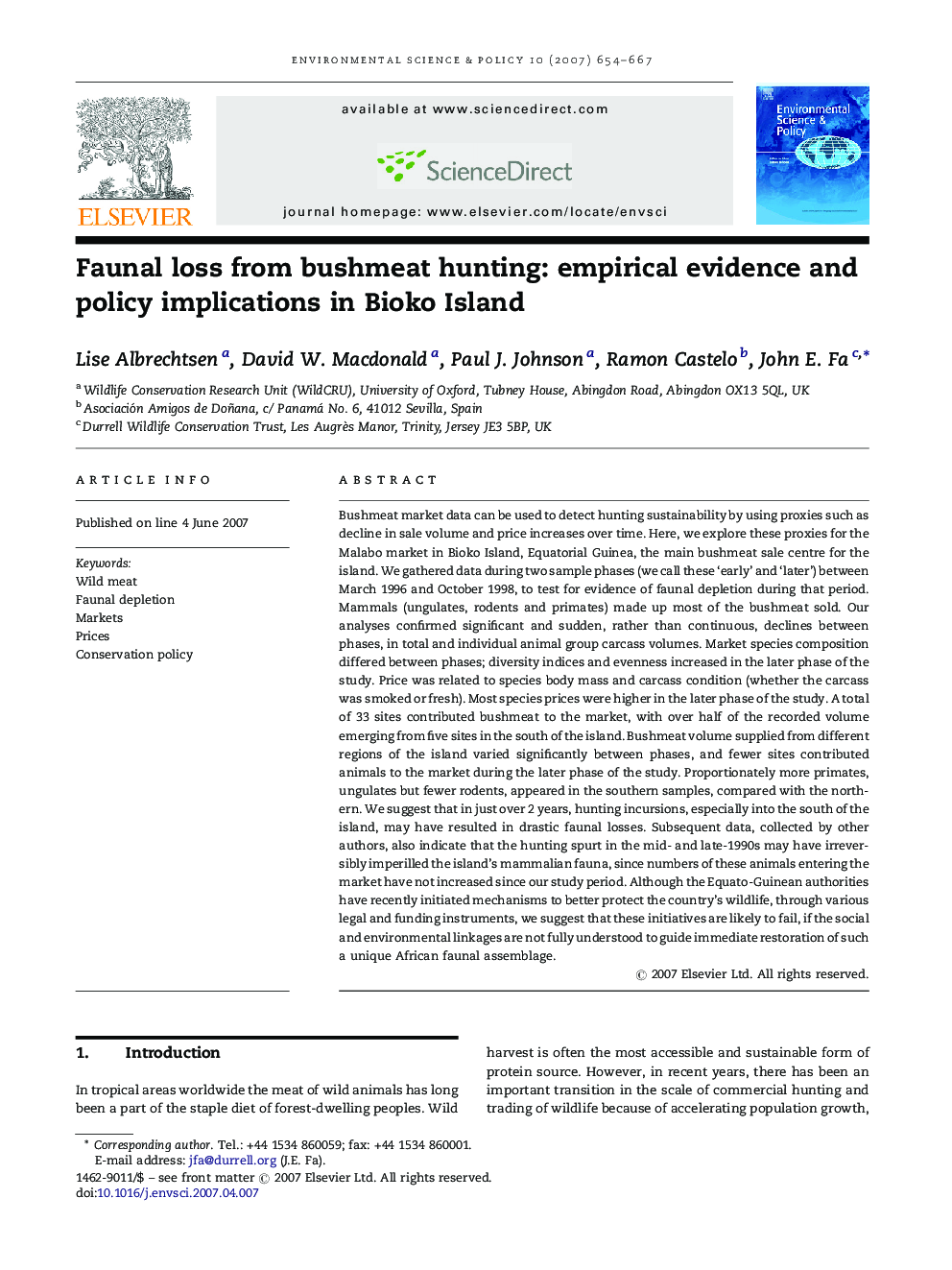| کد مقاله | کد نشریه | سال انتشار | مقاله انگلیسی | نسخه تمام متن |
|---|---|---|---|---|
| 1054242 | 1485090 | 2007 | 14 صفحه PDF | دانلود رایگان |

Bushmeat market data can be used to detect hunting sustainability by using proxies such as decline in sale volume and price increases over time. Here, we explore these proxies for the Malabo market in Bioko Island, Equatorial Guinea, the main bushmeat sale centre for the island. We gathered data during two sample phases (we call these ‘early’ and ‘later’) between March 1996 and October 1998, to test for evidence of faunal depletion during that period. Mammals (ungulates, rodents and primates) made up most of the bushmeat sold. Our analyses confirmed significant and sudden, rather than continuous, declines between phases, in total and individual animal group carcass volumes. Market species composition differed between phases; diversity indices and evenness increased in the later phase of the study. Price was related to species body mass and carcass condition (whether the carcass was smoked or fresh). Most species prices were higher in the later phase of the study. A total of 33 sites contributed bushmeat to the market, with over half of the recorded volume emerging from five sites in the south of the island. Bushmeat volume supplied from different regions of the island varied significantly between phases, and fewer sites contributed animals to the market during the later phase of the study. Proportionately more primates, ungulates but fewer rodents, appeared in the southern samples, compared with the northern. We suggest that in just over 2 years, hunting incursions, especially into the south of the island, may have resulted in drastic faunal losses. Subsequent data, collected by other authors, also indicate that the hunting spurt in the mid- and late-1990s may have irreversibly imperilled the island's mammalian fauna, since numbers of these animals entering the market have not increased since our study period. Although the Equato-Guinean authorities have recently initiated mechanisms to better protect the country's wildlife, through various legal and funding instruments, we suggest that these initiatives are likely to fail, if the social and environmental linkages are not fully understood to guide immediate restoration of such a unique African faunal assemblage.
Journal: Environmental Science & Policy - Volume 10, Issues 7–8, November–December 2007, Pages 654–667